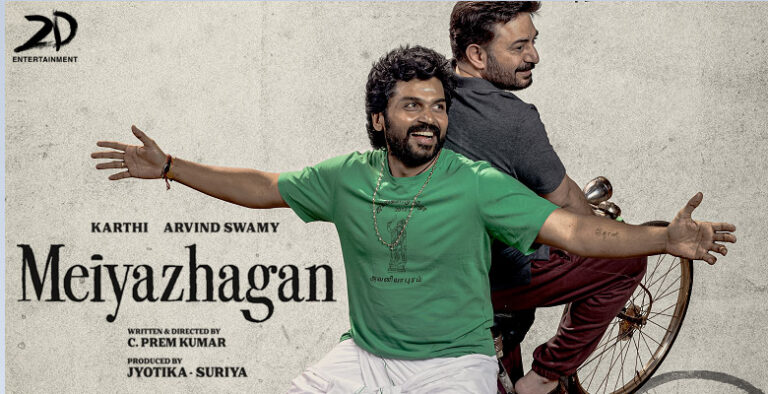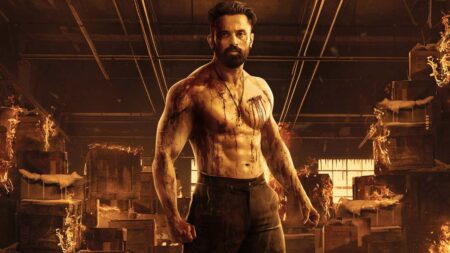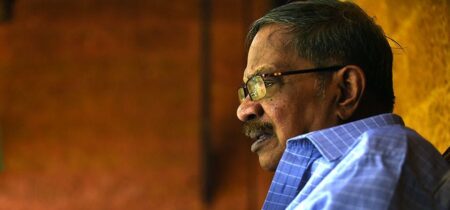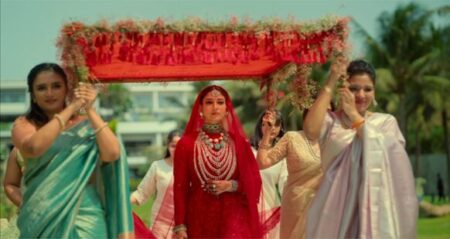Can a city truly remember? As urban spaces race ahead with ambition, they often silence the softer rhythms of emotion, memory, and belonging. Meiyazhagan, the Tamil film, gently probes this disconnect—where nostalgia becomes both refuge and resistance in a world that trades real connection for curated urban sophistication.
It is never quite easy for an urban sophisticate to return to his rural roots and instantly adapt to the rhythms of a common man’s life. Yet, it is precisely at this point of tension—where the city dweller confronts his own dislocated past—that many find themselves pausing, drawn into a reluctant act of remembrance. A past, now distant, yet strangely tender, calls out. And often, this recollection slips into a casual confession—“Hey boss, do you know? I’ve been there, done that. It’s all in the past now… but yes, those were the best days of my life.” Meiyazhagan, the Tamil film, quietly stirs this exact space—where the city has become a site of nostalgia, and memory the only remaining currency of belonging.
Nostalgia- Is that all?
Many people across histories have faced displacement in some form or the other due to multiple reasons. The process even continues today. But a very less lived reality that is not really delved upon is how much emotional we are deep down, and how much ability urban spaces continues to inculcate, particularly on its elite urban credo through bypassing their emotions in the best of its possibilities through embedding individuals with more work/tasks in hand.
Perhaps such a bypassing mechanism is deeply routed in the contours of a city-centric growth process where emotions do not really matter anymore. In other words, in the process of growth, emotions have always taken a back seat. Maybe it is also because of emotions taking a backseat, urban households today tend to have become more nostalgic as well.
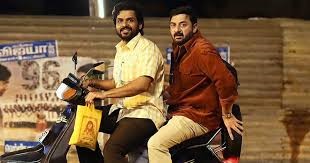
When Arulmozhi Varman leaves his hometown with his parents as an adolescent, he was the most emotional, however 22 years later when he decides to get back to Needamangalam for his cousin sister Bhuvana’s wedding he ensures he books his ticket in such a way that he reaches immediately back to his source area which is the city as he has to get back for an urgent meeting at office the very next day. A source area which was once Needamangalam (technically) becomes a guest destination for a person born and brought up there, while Madras, the place migrated to becomes the source area for Arul. Such instances are deeply implicit in many urban households today in India and it is just set to increase in this 21st century.
The best example in this regard could be mapped when all of us sit in a hall in a gated community and see an Instagram reel in our own respective phones with a BGM of Ilayaraja or whosoever along with the screen showing the rich paddy field or old architectures that you deeply resonate with, but have no chance of going back to.
The seeds of nostalgia today is sadly reduced to such an instance so much so that we live in what Varma, 2023 finds a ‘Perfective Fake’ world. In a Perfective Fake world there is a bypassing mechanism that ensures whatever emotions or instances that one aspires to re-capture gets sidelined through some way or the other. It may come in the form of sudden meetings, client calls, deadlines and the list go on and on.
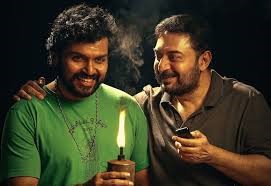
Rural azhagu and urban azhagu
Whatever is an everyday life in rural becomes awe inspiring for an urban resident. Perhaps even the tenets of bonding that is shared. In urban areas a normal conversation begins asking “how are you?”, where the person who is asking is not even bothered to listen to your reply as he/she might be already walking off to get his/her next task done. Why do we as urban residents always have to do some or the other task? Why can’t we just chill? If we can’t chill then what is the point of asking “how are you?”
Perhaps this is where everybody needs a friend who is nameless. Knowing is not really important but doing becomes important is lived and shown through the wonderful performance of Meiyazhagan. Karthi who has taken up the role of Meiyazhagan takes Arvind Swamy who is acting as Arulmozhi Varman to a life that is very less lived for an urban sophisticate. Going to a resort and doing whatever that is being done in a rural setup is the urban imaginary which is deeply fake yet perfect in its industrial manufacturing which majority of the urban households have become entitled upon.
Perfective Fakeness is a part and parcel of the urban imaginary where everybody is reduced to their own households in urban. In rural areas everybody knows everybody, but in urban areas though it is a gated community the next-door neighbor itself will be an acquaintance. Nobody has a bonding that is unparalleled and less sophisticated. Perhaps the contours of rural azhagu and urban azhagu can be understood in its best interest in such instances.
For Meiyazhagan, what is considered as scary and ferocious such as bulls used for Jallikattu and King Cobras are good friends, while for Arul birds like parrots (luckily not caged) are his best friends. Both the characters in a way have an interesting relation with the cobras, snake or be it the parrot. Therefore, while man becomes distant from nature, nature is the inorganic body of man which is the age-old dictum used by Marx 1844 can be seen re enforced in the veins of both Arul and Meiyazhagan. Perhaps the reason for the same may also be because both of them have a rural azhagu that cannot be erased that fast.
As a researcher on urban studies post watching this movie a sense of nostalgia becoming a perfect entry point for marketing the urban is all the more understood. While there is nothing wrong in that, a sense of trepidation arises at the same time. Rurbanisation, a process of expanding the urban fringes and a slow and steady swallowing of the rural lands is soon if not already the latest development paradigm.
In that development paradigm voices like Meiyazhagan and many other Meiyazhagans get submerged. Living at a time when people are desperately looking for quality bonding through installing apps, there is Meiyazhagan who surpasses the structures of bonding through taking bonding itself to a larger paradigm of something that is undefinable. Urban credo may define Meiyazhagan as an epitome of love who has the sky as his limit. But of course, Meiyazhagan should never be weighed down by such urban definitions. Hence, it is the duty of urban credo to re capture and not erase the voices like that of Meiyazhagan that raises hope amidst the process of rurbanisation for many and perhaps not just for Arul.

